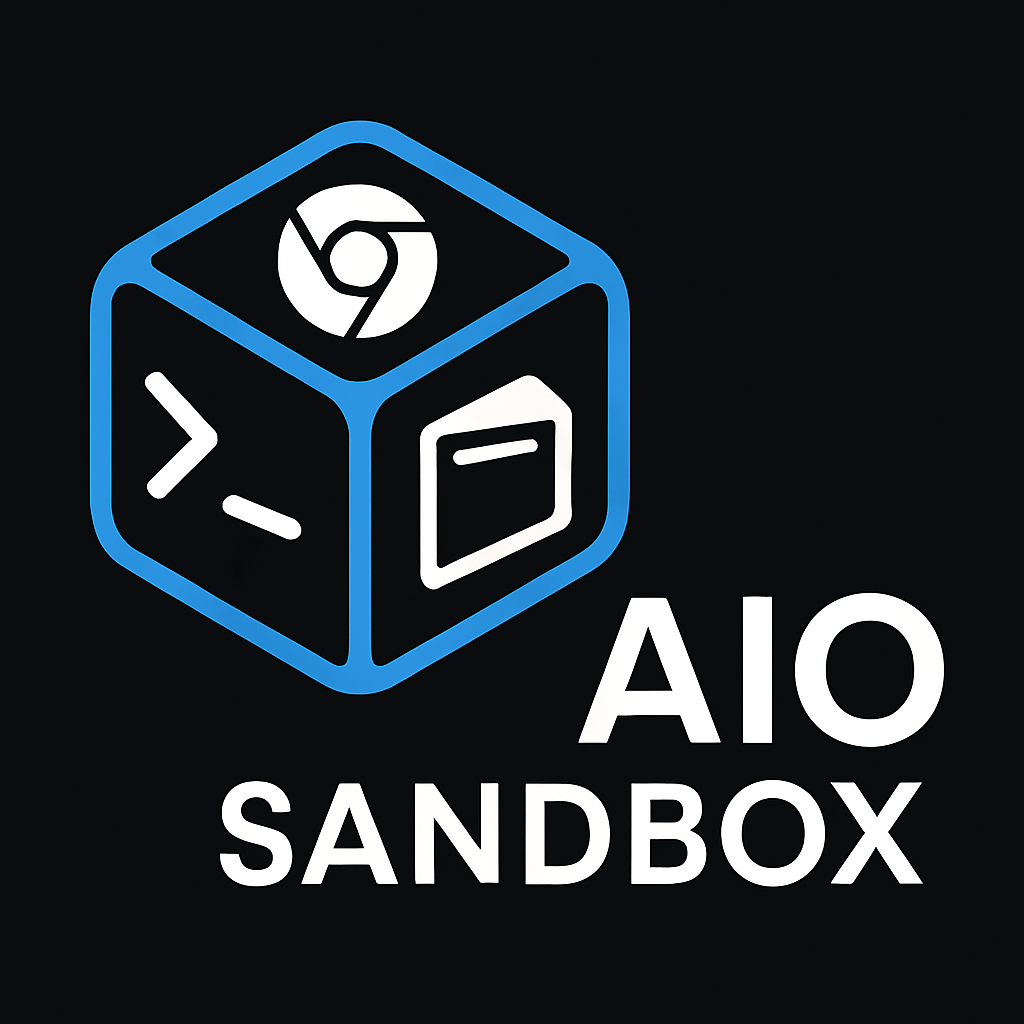Browser & VNC
AIO Sandbox provides a full browser environment with VNC (Virtual Network Computing) access, enabling visual interaction with web applications and GUI-based workflows.
VNC Access
Connection
Access the VNC interface at:
The VNC server provides:
- Full desktop environment
- Pre-installed Chrome browser
- Mouse and keyboard interaction
- Screen sharing capabilities
Features
- Auto-connect: URL parameter for immediate connection
- Responsive Interface: Adapts to different screen sizes
- Clipboard Sharing: Copy/paste between local and remote
- Full-Screen Mode: Immersive browser experience
Browser Automation
Chrome DevTools Protocol (CDP)
AIO Sandbox exposes CDP for programmatic browser control:
Response includes webSocketDebuggerUrl for connecting automation tools.
Browser Use Integration
Example with the browser_use Python library:
Playwright Integration
Works with Playwright for cross-browser testing:
File System Integration
Shared Downloads
Files downloaded in the browser are immediately available through:
- File API:
/v1/file/read - Shell access:
/v1/shell/ws - Code Server:
/code-server/
Example Workflow
- Browse to a website in VNC
- Download files through browser
- Process files using shell commands
- Edit code in VSCode Server
- Run scripts that access downloaded files
Browser Configuration
Default Settings
- Chrome browser pre-installed
- JavaScript enabled
- Pop-up blocking disabled for development
- Extensions allowed
- Developer tools accessible
Custom Configuration
Modify browser settings through:
- Chrome flags in startup scripts
- Profile configuration via CDP
- Extension installation
- Proxy configuration
Performance Optimization
- Hardware acceleration where available
- Memory limits for stability
- CPU throttling for resource management
- Network optimization
Use Cases
Web Scraping
Visual verification of scraping results:
Testing Web Applications
End-to-end testing with visual feedback:
- Form submission testing
- JavaScript behavior verification
- Responsive design testing
- Cross-browser compatibility
AI Agent Workflows
Agents can interact with web interfaces:
- Form filling and submission
- Navigation and clicking
- Content extraction
- File uploads and downloads
Remote Development
Web-based development tools:
- Online IDEs and editors
- Browser-based terminals
- Web application testing
- Client-side debugging
Troubleshooting
Common Issues
VNC Connection Failed
Browser Not Responding
CDP Connection Issues
Performance Tips
- Use headless mode when visual feedback isn't needed
- Limit concurrent browser instances
- Clear browser cache regularly
- Monitor memory usage
Ready to automate browser workflows? Check out our API documentation for detailed endpoint information.

